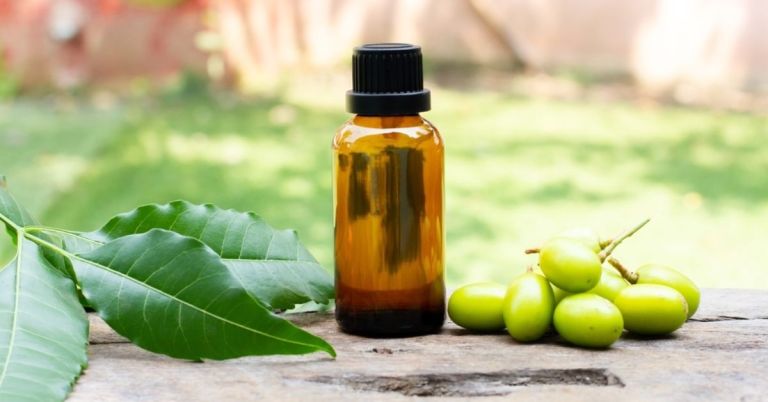
Neem Oil: A Natural Solution for Pesticide Concerns
With concerns about how pesticides impact the environment, many food producers are turning to a natural solution: neem oil for pest control. But what is it? Is it as safe as people think?
In this blog, how neem oil works as a pesticide, how it can be applied to affected areas, and what makes it popular will be discussed.
What is Neem Oil?
Neem oil is a natural pesticide made from the seeds of the neem tree, a species native to the Indian subcontinent and parts of South Asia.
Almost every part of the neem tree is used. For example, twigs are used as toothbrushes because of their antibacterial and teeth-whitening qualities. Additionally, neem is incorporated into beauty products such as shampoos, soaps, and creams. In some regions, children play under the shade of neem trees, kept free from bothersome pests.
References to neem have been found in ancient medical texts written in Sanskrit and the Vedas, the sacred texts of Hinduism. In these texts, neem is called ‘Sarva Roga Nivarini,’ meaning “one that cures all ailments and ills.”
Because it can repel insects and protect plants, neem is regarded as a natural cure for many gardening issues. How neem oil can keep plants protected will now be explored.
How Does Neem Oil Work as a Pesticide?
Two types of neem oil exist: the clarified hydrophobic extract of neem oil and cold-pressed neem oil. Cold-pressed neem oil, which contains Azadirachtin, is recommended by experts, while the clarified extract does not contain this insecticidal substance. Therefore, only cold-pressed neem oil will be discussed here.
Unlike other pesticides, Azadirachtin works by suppressing insect hormones rather than causing direct harm. Pests suffocate under the thick neem oil solution, which leads to death as a secondary effect. Additionally, pest feeding urges are reduced, and starvation eventually occurs.
Neem oil is used to combat aphids, beetles, borers, caterpillars, flies, gnats, grasshoppers, and mites, among other pests.
How Should Neem Oil Be Applied to Your Farm or Garden?
Before using neem oil on your plants, product instructions should always be read. Though most neem oil products contain similar ingredients, application guidelines may vary slightly.
Neem oil is available as either a concentrate or a pre-mixed solution. Concentrate is recommended by our head grower, as it lasts longer. Since neem oil does not dissolve easily in water, the solution must be mixed vigorously before use. For optimal mixing, water should be heated to over 45 degrees Fahrenheit.
- Add the concentrate to a spray bottle with a small amount of warm water.
- Check the product information for the correct mixing ratio.
- Test the solution on a small section of the crop first, waiting 24 hours to observe the results.
- If the test is successful, spray the leaves lightly on both sides and allow them to dry.
In hydroponic farms, grow lights should be turned off before application, as they affect absorption. Keep lights off for at least an hour after application. Neem oil is reapplied weekly until pests are no longer detected. Furthermore, spraying around entrances helps prevent insects from entering farms or greenhouses.
Are There Any Concerns with Using Neem Oil?
While neem oil is safer than chemical pesticides, certain precautions must still be taken. Eye protection, gloves, and an apron should be worn to reduce the risk of skin irritation. Hands should be washed before and after handling neem oil.
Neem oil concentrate should not be stored above 104°F or below 70°F. If frozen, the cap should be tightened, and the container thawed by placing it in warm water.
Neem oil may also impact non-target insect populations, such as pollinators. For this reason, outdoor applications should be made carefully, avoiding times when pollinators are active. Early morning or late afternoon spraying is recommended to prevent harm to beneficial insects and to avoid leaf burn.
Are There Cases Where Neem Oil Isn’t the Best Option?
Neem oil is highly effective, but certain circumstances may call for other pest remedies. For example, neem oil may not be suitable for managing large-scale infestations, where stronger pesticides are required.
In large farming operations, alternative pesticides may offer better results. However, for small-scale operations, such as container farms, neem oil remains a safe, cost-effective, and reliable option.


